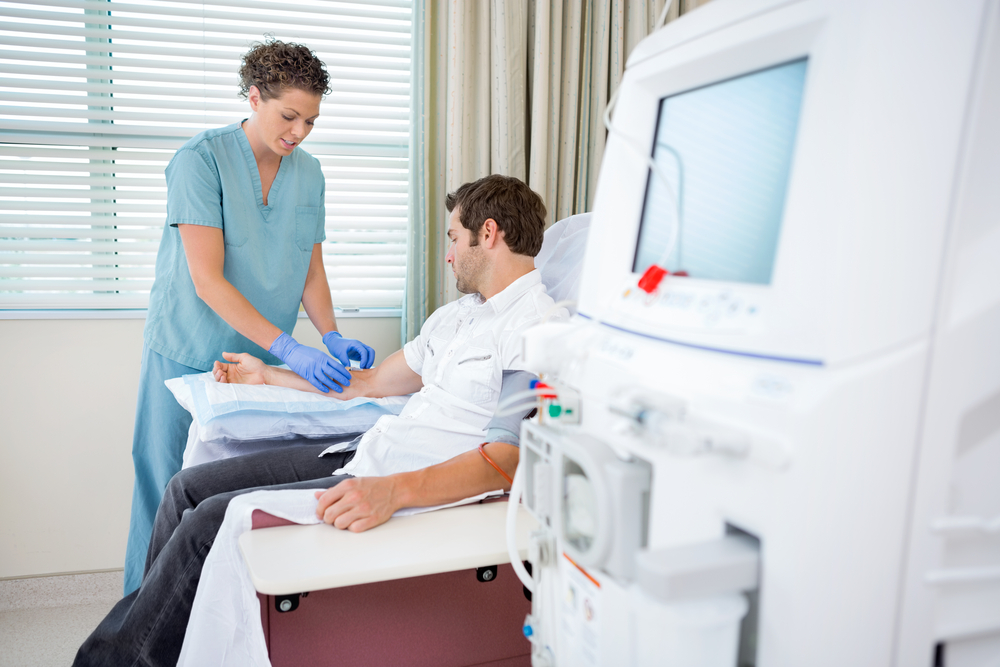The kidneys play a huge role in our bodies by filtering out waste and toxins, maintaining balance, and regulating the body’s pH level. Because of this, it’s important to prioritize the health of our kidneys to prevent kidney disease and other damage to the organs.
Let’s take a look at the factors that can increase the risk of kidney disease and some tips on how to reduce your risk of the condition.
Factors That Increase the Risk of Kidney Disease
There are certain risk factors associated with kidney disease that can increase the risk of developing the disease. But, by controlling some of these risk factors with healthy habits and proper treatment, you can work to prevent kidney disease.
Some of the risk factors of kidney disease include:
Diabetes
Having uncontrolled diabetes significantly increases the risk of developing kidney disease. Taking prescribed medication and changing your diet can significantly control your diabetes and, in turn, reduce the risk of kidney disease. You can start by reducing your salt intake and incorporating foods such as fruits, vegetables, and whole grains into your diet.
High Blood Pressure
Individuals with hypertension also have a risk of developing kidney disease. Regularly monitoring your blood pressure levels, taking any blood pressure medication you’re prescribed, and making certain lifestyle changes are a few steps you can take toward prevention.
Heart Diseases
Having heart disease can also greatly increase the risk of developing kidney disease. Because of this, it’s important to prioritize your heart health by incorporating regular exercise and maintaining a healthy diet. If you have a family history of heart disease, make sure to let your doctor know, and they will be able to help you take additional steps to ensure your heart health.
Obesity
Obesity can also increase your risk of developing chronic kidney disease. Because obesity can increase the risk of high blood pressure and diabetes, and those are two risk factors for kidney disease, it’s important to keep an eye on your weight at well. Try exercising regularly and practicing healthy eating habits.
Family History
A family history of kidney disease significantly increases the risk of developing the condition. Although there is not much you can do to change your genetic makeup, leading a healthy lifestyle and following specific prevention tips can help you reduce the risk of actually getting kidney disease.
Understanding the Different Stages of Kidney Disease
Having a grasp of the stages of kidney disease is also important. If you know what stage you’re at, you can have a better grasp of what your treatment should be. And detecting it early makes prevention and treatment much easier.
Familiarize Yourself with Tests
Being aware of the tests for detection, treatment, and prevention ensures you know what to ask for when you go to the doctor. And when going to the doctor, you’ll want to choose a qualified professional who specializes in kidneys, like Dr. Tandon at Kidney Clinic of North Florida. He will be able to provide any information and testing you need.
Learn about Lifestyle Modifications
Making lifestyle changes is essential for preventing and managing kidney disease. For example, reducing salt intake, regularly exercising, and making healthy food choices can help lower the risk of developing kidney disease.
Adopt Healthy Eating Habits
Maintaining a healthy diet is vital for maintaining kidneys. Incorporating fruits and vegetables into your daily routine is highly recommended. Why? By eating healthy, you reduce the risk of high blood pressure, diabetes, and high cholesterol, which are all risk factors for kidney disease. When you reduce the risk of these issues, you also reduce your risk of kidney disease.
Schedule A Consultation
While many factors can contribute to the development of kidney disease, there are also a variety of things you can do to help reduce your risk of getting the disease. One of your first steps should be scheduling a consultation at the Kidney Clinic of North Florida. Dr. Tandon can answer any questions you have, help you maintain optimal kidney health, and determine the right treatment plan for you if you do have kidney disease.
To schedule a consultation today, call our Jacksonville, FL office at 904-593-5333 or use our online scheduling form.




